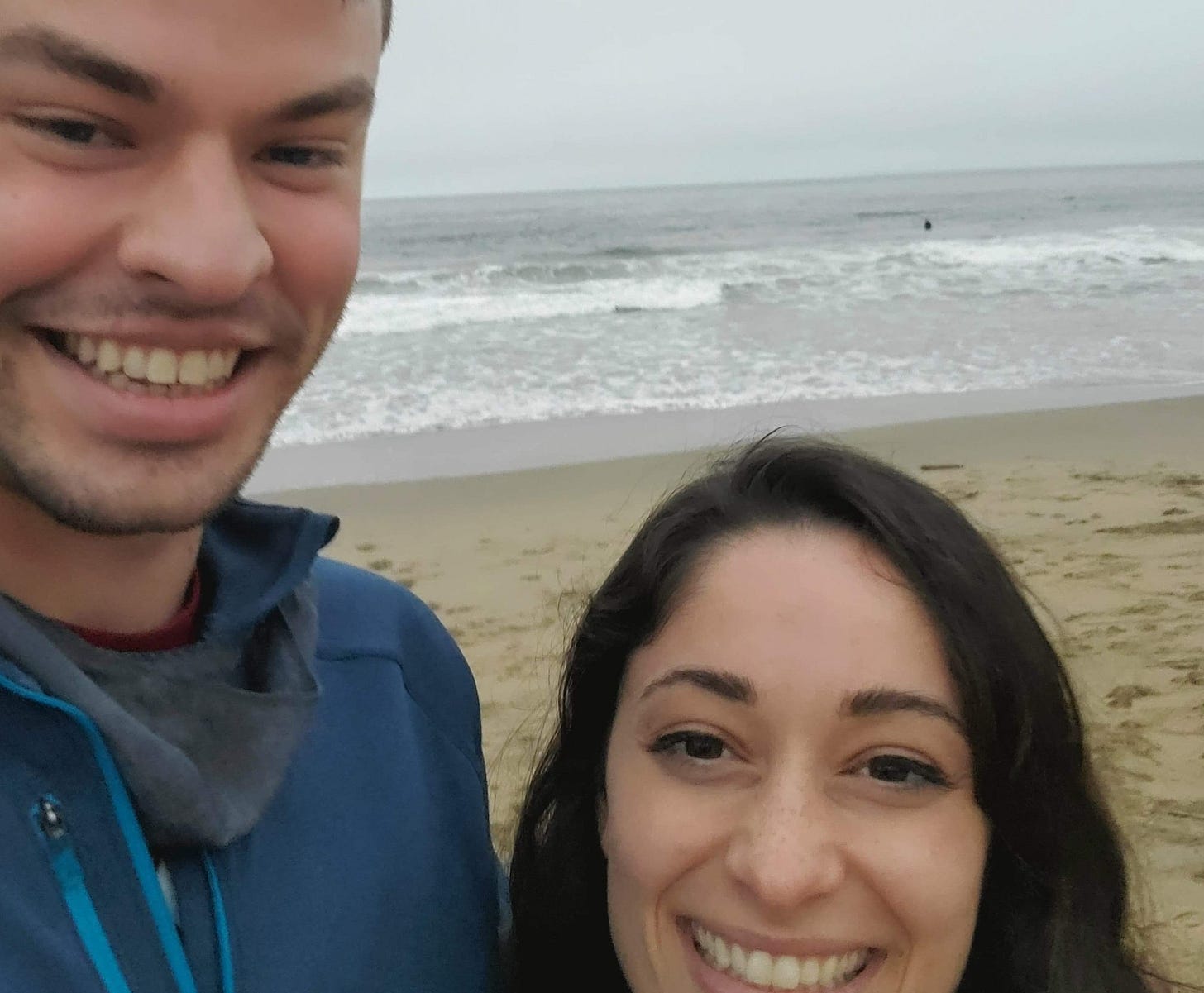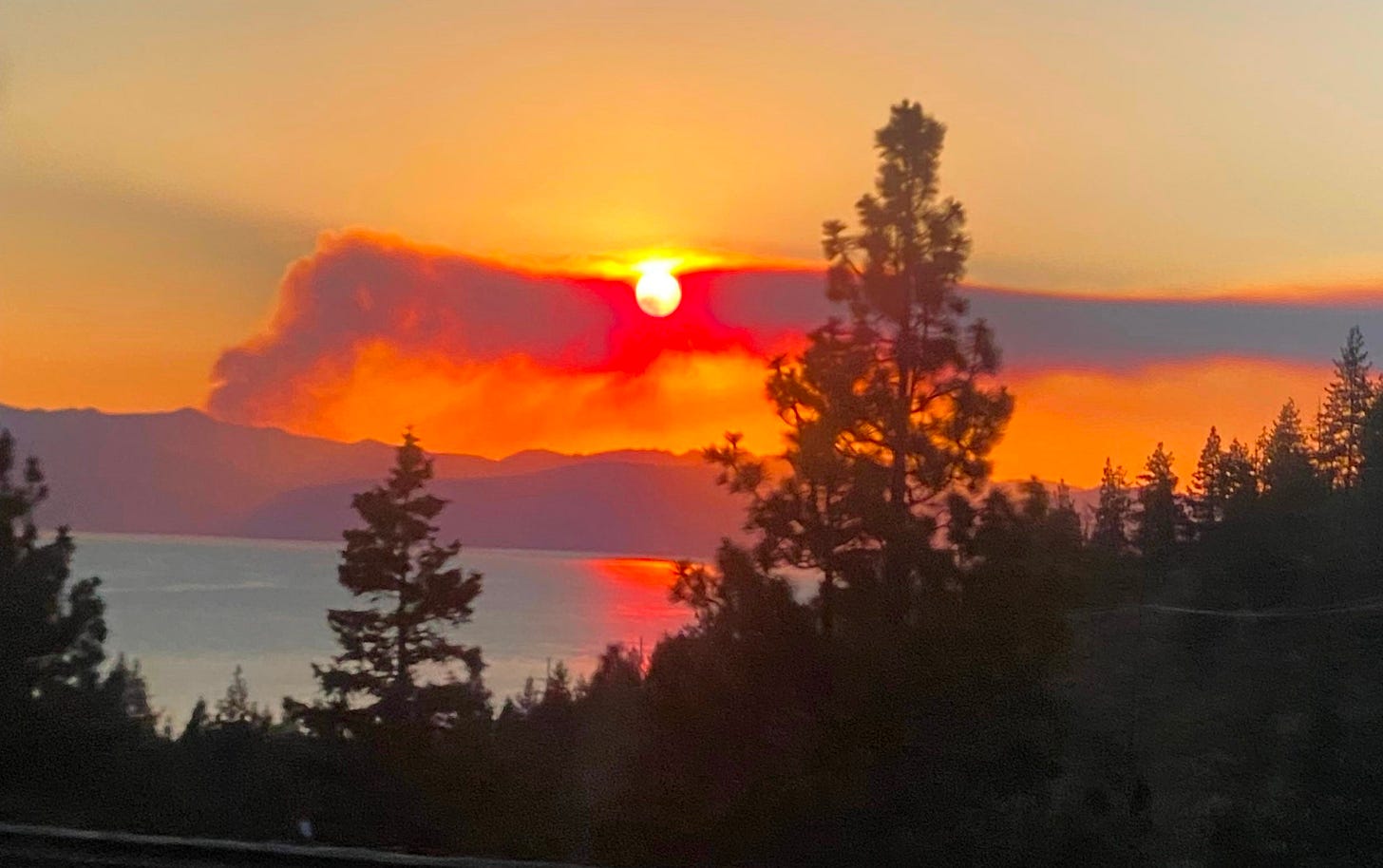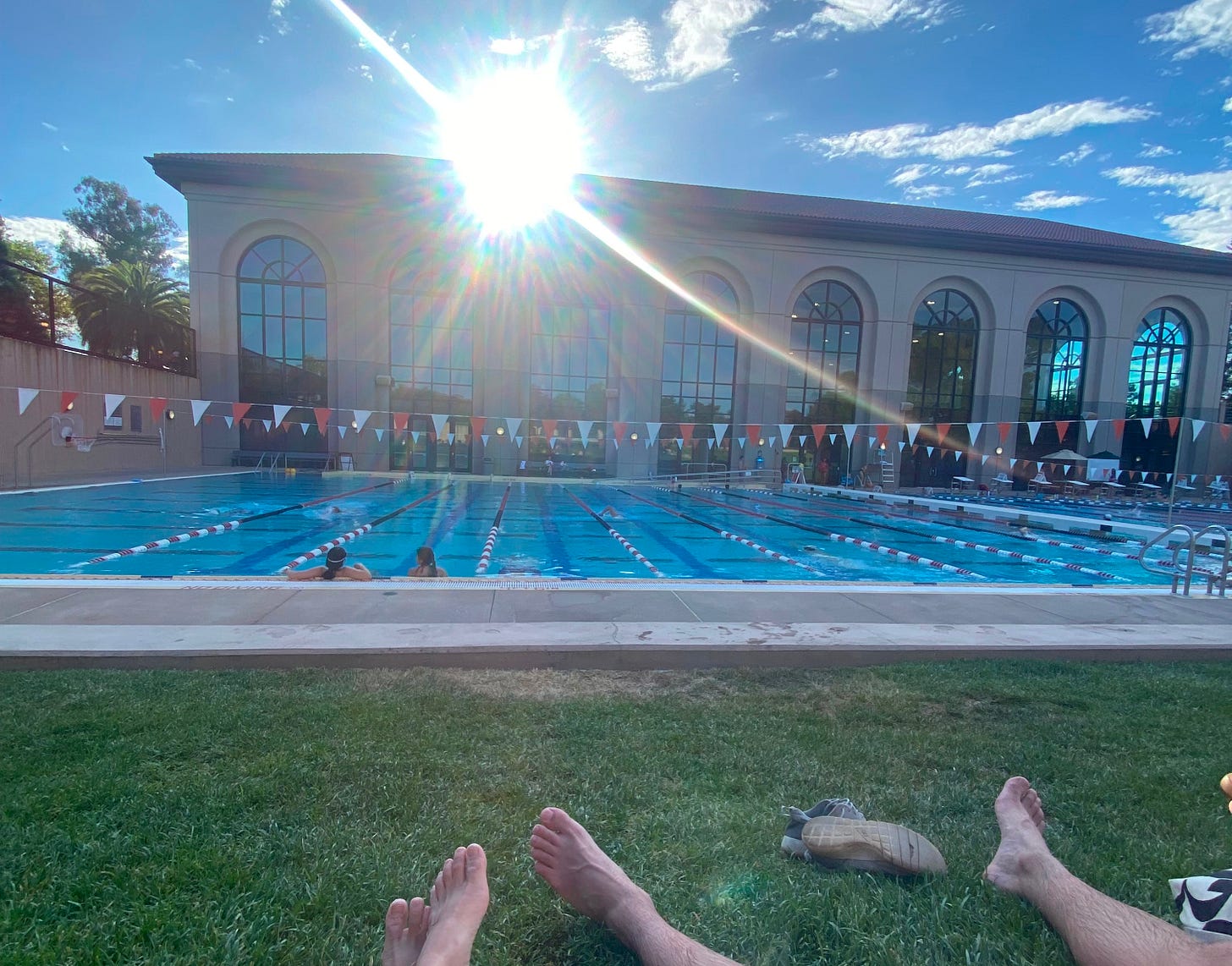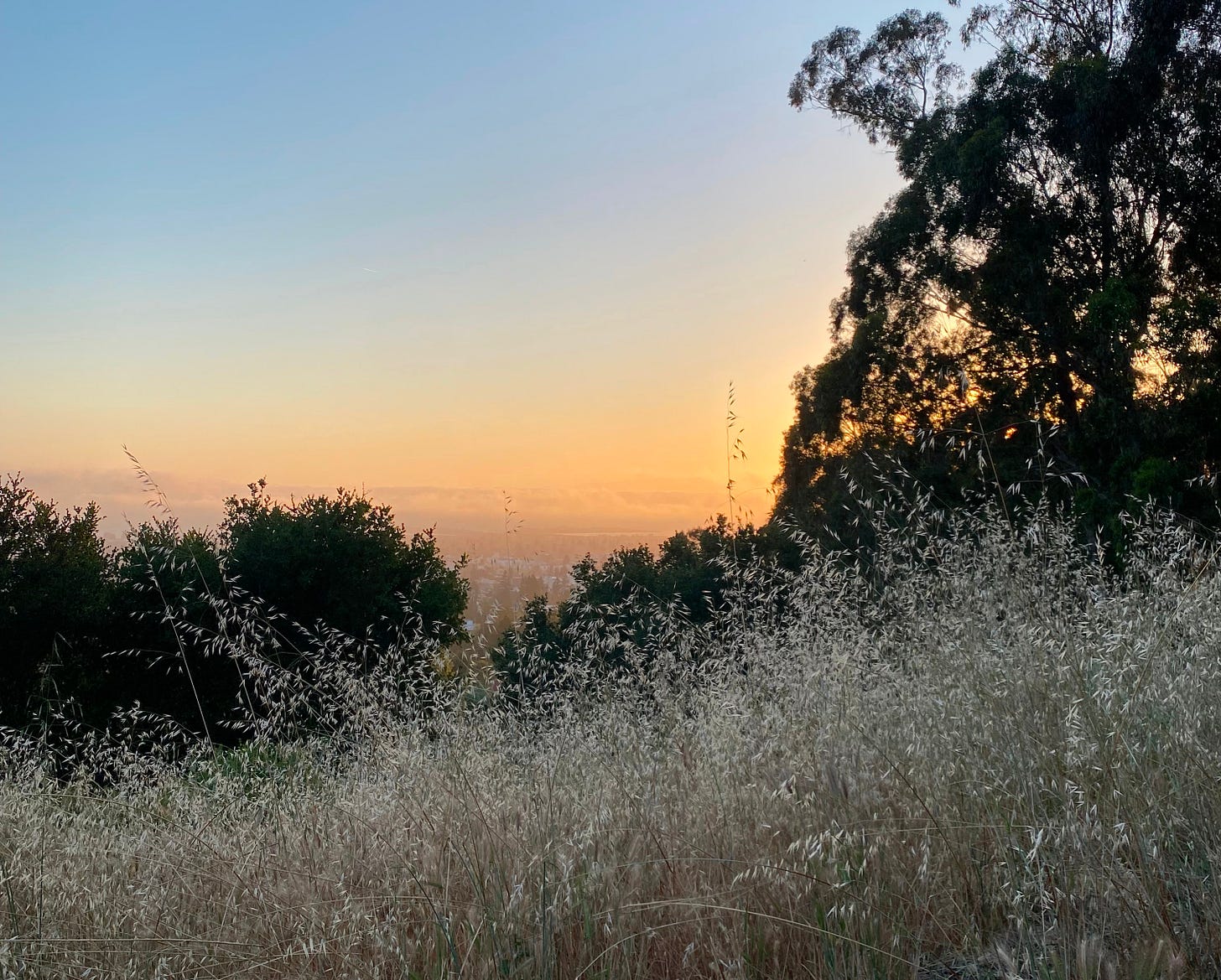Every time I read history I am inspired by three truths:
Change takes years.
Sometimes things get worse, sometimes things get better.
Just because something hasn’t happened yet, doesn’t mean it won’t.
Lately I am drawn to history because I am acutely aware that I am living it. The average global temperature exceeded 1.5 degrees Celsius for an entire year. A heat dome is cooking the states. More than 1,300 pilgrims died from heat exhaustion during the hajj. Ocean temperatures are significantly hotter than ever before, leading to a likely catastrophic hurricane season. We are close to irreversible tipping points. This will be the coldest year I experience for the rest of my life.
Why aren’t we all talking about this? Why was I the only person crying in the dining hall yesterday?
In addition to history, I’ve been thinking about what it means to love every piece of this messy, broken world. I’m thinking about a quote I read somewhere and wrote down without attribution: that we cannot shame into change, we can only love into evolution.
Alas, I’ve forgotten what exactly I came here to write about. I guess I have to laugh, have to love this, too.
~~
Okay, I remember. I’m at the Stanford pool lounging and reading in the sun while Alex is in the gym. I’m wearing a beautiful, brightly colored swimsuit from Shein—the horribly unethical and toxic fast fashion company. I bought it a month before I came to California to visit Alex for the first time in September 2020 (six years into friendship, one month into dating) because I didn’t understand anything about the Bay Area or its weather—I just knew he lived near the beach and I wanted to look beautiful. I wanted him to fall in love with me the way I’d been falling in love with him, and I thought maybe a fun multicolored swimsuit would help me communicate something about who I am. I remember wanting to buy a swimsuit from a sustainable brand, but quickly getting overwhelmed with the research and the prices, so I caved. I bought two swimsuits from Shein.

I still love the way this swimsuit looks on me—I loved it then and I love it now. But I notice how cheaply it was made. The elastic has been breaking down into little beads which now float aimlessly in the suit. The colors faded quickly. The pattern isn’t even as distinct as I thought; I’ve since seen two others wearing it, though in a different cut. “Shein?” I want to say, but don’t, because I already know.
Now that I’ve grown into a more consistent person of values, I actually feel embarrassed to be seen in it. It still looks lovely, but I think I’d look lovely anyway—sitting here in the sun, smiling at the children laughing, writing in my journal, trying my best to love every piece of the world. I don’t even really care anymore about whether I look lovely, because lovely is how I feel.
And this is what brings me to the point, about loving it all, even the bad parts. I feel lovely here today because I know with absolute certainty that this was the last Shein swimsuit I will ever buy and the last I will ever wear. I am not ashamed of the decision I made in 2020 to buy a swimsuit to impress a boy, though I am not proud of it either. I just love the journey I’ve been on, and I love this swimsuit for being an artifact of it.
If it’s the coolest summer I’ll have for the rest of my lifetime, I may as well enjoy every piece of this moment basking in the sun, reflecting on the ways both big and small that I’ve contributed to the mess of the world we’re in, and re-commit myself to being madly in love with the roles, both big and small, I will play in making it better.
~~
Sometimes I get down. I saw a documentary yesterday called Where the Olive Trees Weep, a “searing window into the struggles and resilience of the Palestinian people under Israeli occupation.” I felt so human sitting there in the theatre in the middle of the day, weeping through the credits. The theatre was sparsely filled, but most of us remained in our seats, unable to move even after the lights came on. I held myself in the chair, legs squeezed into my chest.
I wonder how to love this, and a quote comes to mind from a book I read earlier this year by Jack Kornfield: “The purpose of suffering is to bond our hearts.” I take this to mean that if we don’t let ourselves be moved to come together when bombs drop and glaciers melt and species die, we are so utterly missing the point. And the opportunity.
When I get to feeling down, I remind myself that not only am I in progress, but that I represent it. That I grew up in the Texas suburbs in an apolitical household, worked in management consulting, went to business school. “On paper” my life has been dedicated to upholding dominant systems of power because those are the systems I have benefited from. But on this paper, these pages that I pour myself into and read back from time to time and now choose to occasionally share on the internet, I am not dedicated to the status quo at all—I am not even fervently against it. Rather, as I say over and over and over again, as a spell that both speaks to and creates my identity: I am dedicated to learning and growing in pursuit of truth.
And the truth here is simple: The Way Things Are isn’t working for everyone and is destroying all forms of life on our planet. It’s not even working for me—someone in one of the top wealth brackets for my age who has achieved many capitalist milestones we are taught to ought to want.
For it to work for me, I’d have to numb that human part of myself. I’d have to be able to look at what is happening in the world and believe that other people are less human than I am, that I deserve resources gathered at the expense of their livelihoods, that their suffering is inevitable. I’d have to believe that anything I’m capable of doing is too small to make an impact on the world, even though a few weeks ago I was on walk and paused to smell a flower and a minute later when I turned around, I saw a couple who had been walking toward me pausing to smell that same flower.
I cannot kill the part of me that weeps in the dining hall, in the theatre. I can only love her—she is part of this messy, broken world.
So what will we do? What will I do? The books I read remind me that many have come before me who knew this simple truth and dedicated their lives to changing the conditions since long before I was born. They remind me that change takes years. That sometimes things have gotten worse, sometimes they’ve gotten better. And that just because we don’t yet live in a regenerative and distributive world, doesn’t mean we won’t. It all depends on the choices we make.
As my muse and teacher Mary Oliver says, “Let the path become where I choose to walk / and not otherwise established.”
Unbound is a publication by Elizabeth Schasel, born during the liminal eight months between finishing grad school and returning to a corporate job. The goal of Unbound is to live small and slow—read as many books as possible, go on long walks, be silly with friends, and try to figure out how to be in the world in a way that aligns with my values. I invite you to visit the full list of entries below.




Incredible as always Liz! As someone who believes in the interconnectedness of it all, this gave me goosebumps, as just 2 HOURS AGO my friend shared this Mary Oliver section that reminds me of some of what you shared:
“If you suddenly and unexpectedly feel joy, don’t hesitate. Give into it. There are plenty of lives and towns destroyed or about to be. We are not wise, and are not very often kind. And much can never be redeemed. Still life has some possibility left. Perhaps this is its way of fighting back, that sometimes something happens better than all the riches or power in the world. It could be anything, but very likely you notice it in the instant when love begins. Anyway that’s often the case. Any way, whatever it is don’t be afraid of it. Joy is not made to be a crumb.”
I think we’re all weeping on the inside. I know I am. But we also live in a society that stifles joy as fast as the next news cycle or interaction with a new individual. It’s not a crumb. Thank you for sharing yours with us.